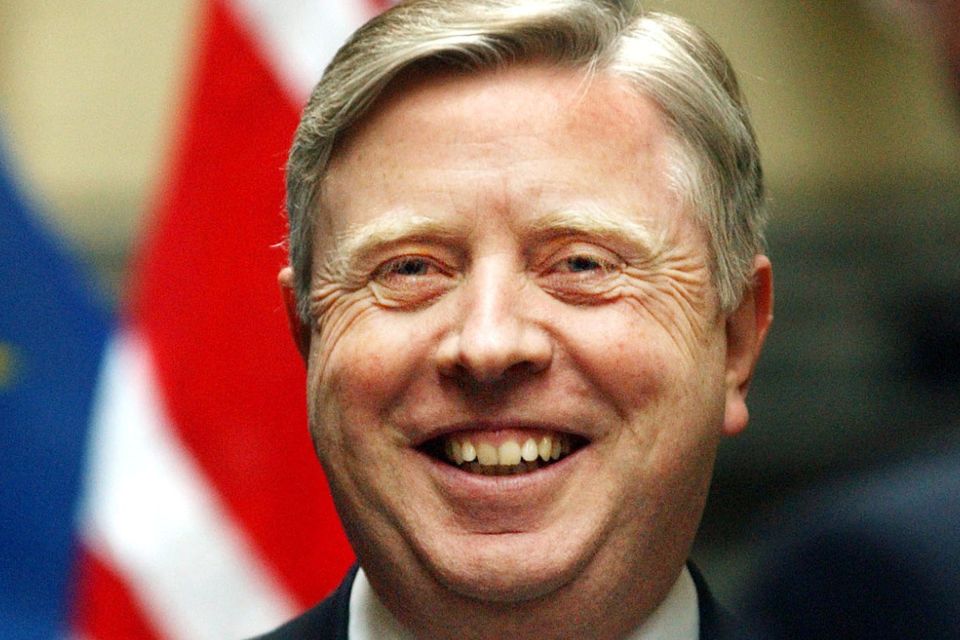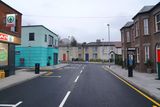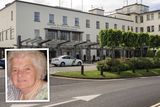Former European Parliament president calls for rethink on hard border fears
Pat Cox is former president of the European Parliament
The former president of the European Parliament has called for a rethink of "speculative" fears of a hard border between Northern Ireland and the Republic.
Dublin-born politician Pat Cox was a member of the legislature for 15 years and said the EU had already recognised existing travel arrangements between the UK and Ireland.
British prime minister Theresa May has said nobody wants to return to the heavily fortified border of the past between Northern Ireland and the Republic.
Mr Cox told businessmen in Newry, Co Down, that the authorities in Belfast, London and Dublin had committed to maintaining the common travel area (CTA) which allows free movement of people between Britain and Ireland.
He said: "If the primary parties to the CTA, the UK and Ireland, share these views, Ireland is entitled to rely on existing EU law, custom and practice as a point of departure in its dialogue with the EU institutions and the twenty-six other member states.
"Recalibrating the political debate from speculative expressions of fear and anxiety about hard borders to anchoring it in established EU rights and practice could be a useful point of departure."
Mr Cox acknowledged uncertainty created by last month's Brexit vote.
But he said: "The EU already, both politically and legally, formally has recognised the CTA between Ireland and the UK. It has accepted that established custom and practice and the balance of convenience of Irish and British citizens were served by its continued existence.
"It has permitted in law a UK and Irish opt-out of the standard Schengen arrangements. The UK has now voted to opt out of the EU itself, which will be a rupture with the past, but Ireland remains fully committed to its membership, which signals a continuity with the past."
He said the prospect of Ireland becoming a soft back-door entry point to the UK through its land border with Northern Ireland posed a valid question but added it had been dealt with by the British and Irish governments five years ago.
The aim of the initiative was to facilitate the movement of legitimate travellers within the CTA and p revent individuals intent on abusing the arrangement from travelling to the area.
Mr Cox added those objectives were to be achieved through working on common standards, data and information sharing, e-border initiatives and reinforced co-operation between the UK Border Agency and the Irish Naturalisation and Immigration Service.
"These are the cornerstones for future bilateral negotiations with the UK and this is a wheel that already exists and does not need to be reinvented.
"Between existing EU law, custom and practice and already established systems of co-ordination between Ireland and the UK on the CTA, it is high time to dial back the volume of anxiety and angst-driven comment and commentary and to begin the less voluble but ultimately more productive pathway to progress, established on the solid foundations of our legal and institutional inheritance, bilaterally with the UK and multilaterally with the EU."
Join the Irish Independent WhatsApp channel
Stay up to date with all the latest news















